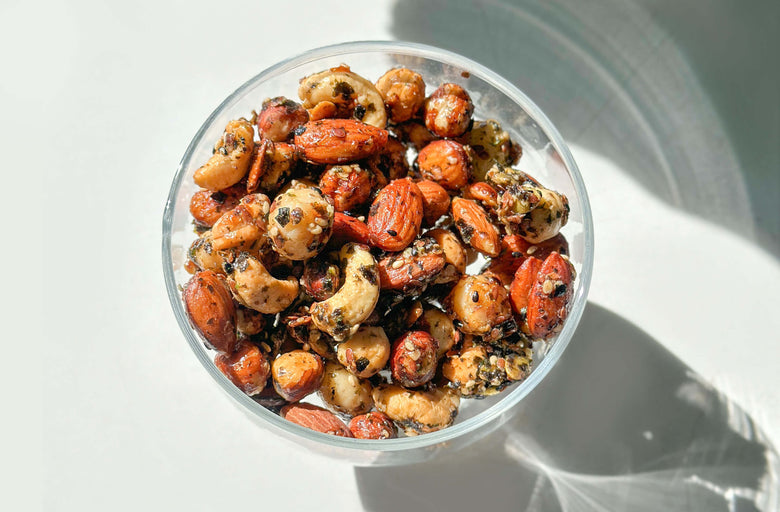From Sakara In-House Nutritionist Colleen Coffey, MS, RDN, LDN
In our non-stop, go-go-go day and age, stress can feel all-encompassing. When left unmediated, it can wreak havoc on our systems, interrupt our sleep cycles, and cause us to feel generally rundown. But, the science on stress tells us something surprising: some kinds of stress are actually good, and even promote improved health and longevity.
Another surprise from the science on stress? We’re not the only ones who get stressed out. Plants do, too—and we can boost our health by harnessing the beneficial byproducts of their version of stress, known as xenohormesis.
The Two Types of Stress
What’s important when it comes to stress is differentiating the kinds we experience—mitigating any harm and allowing our bodies to build beautiful resilience and strength.
Stress falls into two categories: chronic and hormetic. Chronic stress—the always-there, something’s-weighing-on-you kind that comes from long-term exposure to low-grade stress—can negatively impact our physical and mental health if experienced consistently over time. On the other hand, you know the exhilaration you feel from running sprints or crushing a 24-hour deadline? That’s hormetic stress. It happens in short-term, healthy low doses, and can actually build tolerance, lead to positive biological responses, and enhance cell strength to handle longer term stress. While chronic stress does have a negative effect on our health and requires daily stress management techniques, hormetic stress—a.k.a. small bursts of stress—can actually build biological resilience (read: what doesn’t kill you makes you stronger).
Plants Get Stressed, Too
Hormesis, or exposure to hormetic stress, is considered to be a universal phenomenon that is common in nature. Humans are not the only species who benefit from small doses of stress: plants undergo hormesis, as well. When grown in natural conditions, plants experience stressful environmental conditions—from insect bites to weathering a violent storm—that they must adapt to and evolve with in order to thrive.
One way plants adapt? By producing byproducts that keep them strong and healthy.
“Xeno” meaning “stranger” and “hormesis” meaning “stress,” xenohormesis is a biological principle that explains how environmentally stressed plants produce protective, bioactive compounds to defend themselves and discourage other animals from consuming them. During a plant’s sophisticated stress response, it produces bioactive compounds like antioxidants and phytochemicals. When ingested by humans, these xenohormetic plant compounds—like resveratrol, EGCG, and flavonoids—can improve human longevity and healthspan by protecting your cells and organs from free radical damage, which is associated with a variety of chronic degenerative conditions.
In other words? A little bit of stress for a plant means a lot of health benefits for us.
The Benefits of Choosing Organic
The farming practices used to grow and harvest plants has a direct impact on xenohormesis. Modern farming, also known as monoculture farming, involves the farming of a single species of plant. It’s cost-effective and one of the most efficient ways to mass produce food as we do in the U.S. Unfortunately, there are many downsides to this type of farming—one being a reduction in xenohormesis, a plant's innate immune response, due to the use of pesticides, herbicides, fungicides, and more. Synthetic compounds are designed to protect crops from pests and environmental stressors, thereby reducing the plants' need to generate protective compounds and resulting in a lower concentration of phytochemicals and antioxidants.
On the flip side, an organic, regenerative farming system encourages and preserves a natural relationship between soil organisms, so plants can thrive naturally and need less support from artificial additives and chemicals. These plants are rich in potent, protective compounds (like antioxidants and phytochemicals) to support your long-term health and well-being. (And why we only source high-quality, plant-based ingredients from regenerative, organic farms.)
We can optimize our health by choosing organic ingredients—like the ones found in all our nutrition programs and products—that do more for us, from nourishing our bodies and microbiome to protecting our cells and metabolic processes. And if the plants get a little naturally stressed (and as a result, naturally resilient) along the way? It’s all part of the beautiful natural process.
MORE ON SAKARA SOURCING PRACTICES






